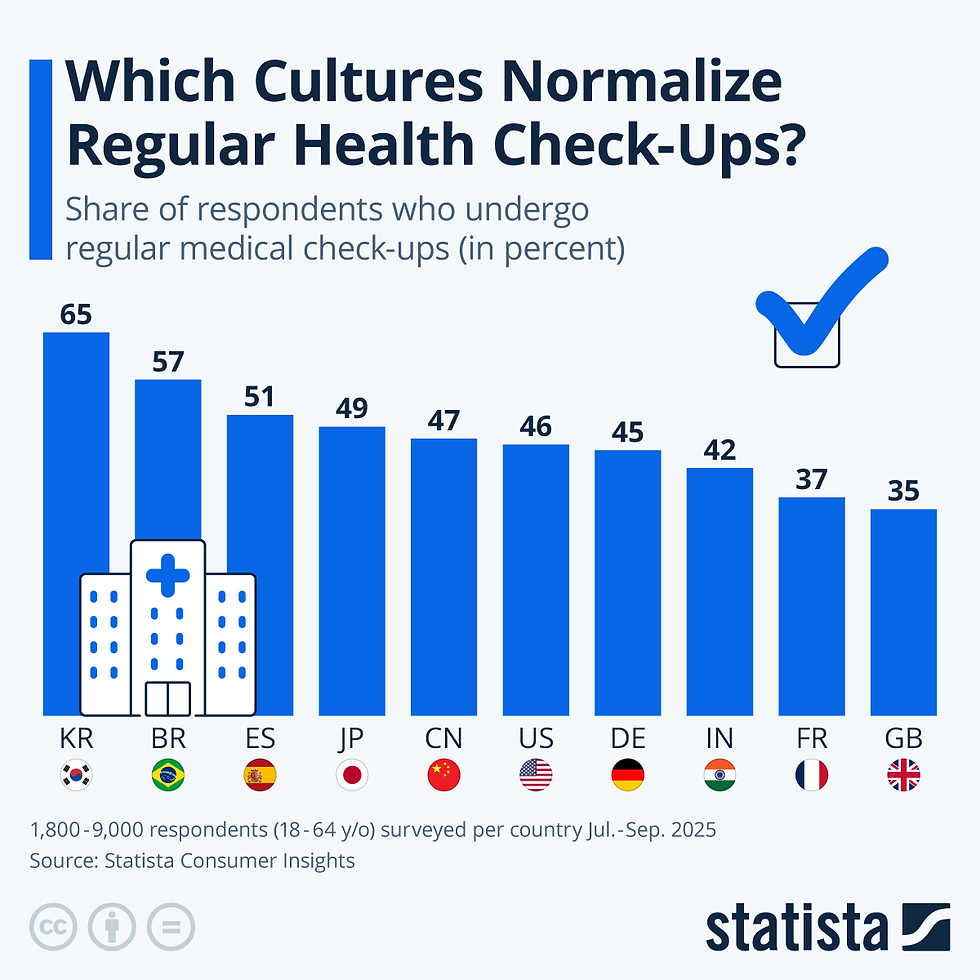The Global Gulf in Organ Donation Rates
- Create and Learn

- Jun 5, 2022
- 2 min read

This article is published in collaboration with Statista
by Anna Fleck
The Swiss have voted in favor of a new law which would promote an ‘opt-out’ transplant system. Or, in other words, when someone dies, the default will be to donate their organs where possible, unless the person had specifically said otherwise. Relatives can also reject the process if they say the deceased person would not have wanted it. The case raises the question once more of whether countries should enforce an opt-in or an opt-out system, and draws attention to the ongoing organ shortage of past years.
Data from the European Directorate for the Quality of Medicines and Health Care (EDQM) shows that Spain and the U.S. came out joint top for the highest rates of organ donors in 2020, with 38 deceased donors per million population. In Spain, this high rate is mostly put down to its opt-out system. The U.S., however, is perhaps more surprising as it has an opt-in system. In its case, the barrier for registration is relatively low, as in most states, you can register to be a donor when applying for or renewing a driver’s license. This leads onto the grim reality that the biggest source of organ donations are people who have been in fatal vehicle accidents. According to the United Network for Organ Sharing, these account for 33 percent of donations. As NPR reports, with fewer people on the roads through the pandemic, that meant fewer transplants.
Despite the fact that Russia has an opt-out system which presumes consent, its numbers of organ transplants are relatively low. According to the Russian Journal of Transplantology and Artificial Organs, this is put down to “human causes” and “poor organization.” Meanwhile Turkey has a higher level of organ transplants from living donors, but is at the lower end of the organ transplant gap from the deceased, with only 2 people per million, respectively.
Start leaning Data Science and Business Intelligence tools:




























Comments